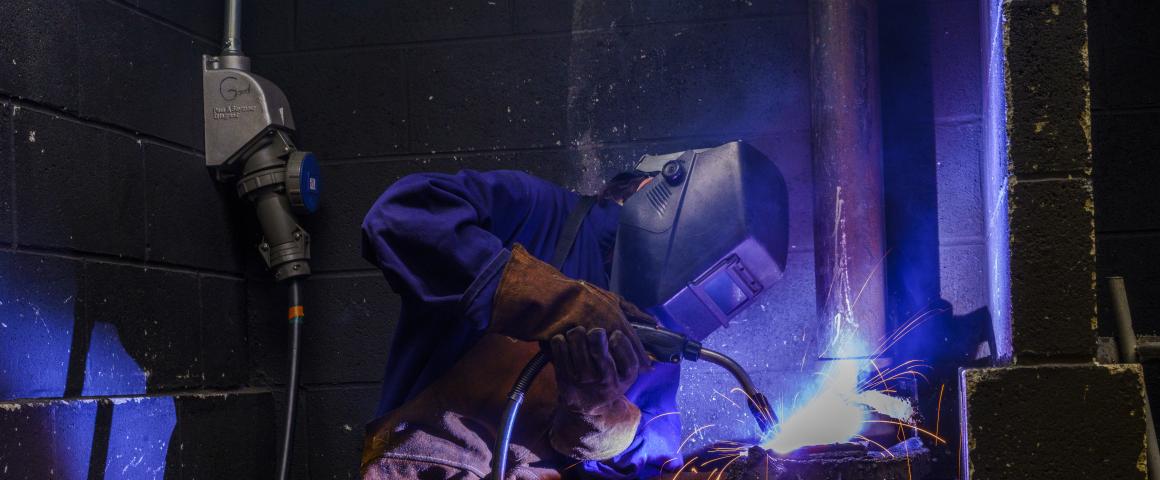
Welding
Potential earnings range:
$38,130-$75,850*
Per year after graduation
Are you interested in hands-on, fast-paced environments? Have strong attention to detail and work well with others?
Then you may be a good fit for Job Corps’ Welding program.
On the job you will …
- Join metals using a variety of techniques and processes
- Read blueprints, work orders or production schedules to determine product or job instructions or specifications
- Inspect, measure or test completed metalwork pieces to ensure conformance to specifications, using measuring and testing devices
Some of the career options you will have ...
Most Welding Job Corps graduates go on to work for manufacturing companies, construction, wholesale trade or repair shops.
Students should also consider pursuing the Advanced Welding training area and other Advanced Training programs at Job Corps as part of their career pathway.
The credentials you will earn ...
In the Welding program, you can earn industry-recognized credentials from such organizations as:
- American Welding Society (AWS)
- National Institute for Metalworking Skills (NIMS)
Students should also earn a state-issued learner’s permit and driver’s license upon completion of the program.
What you’ll need to start training ...
- Have a high school diploma or equivalent
- Completion of all introductory and career preparation courses
- Passing scores on all written and performance tests
- Meet academic (math and reading) requirements
* Salary information comes from the U.S. Department of Labor’s Bureau of Labor Statistics, Occupational Employment and Wage Statistics Program and is provided for planning purposes only. Actual salary will depend on student skill level, credentials earned, experience level and location.

Meet your instructors

Scott Bennett
Scott Bennett started attending the A & C Welder Training and Testing Institute out of Philadelphia, Pennsylvania. From there, Scott spent his career constructing bridges and mining equipment and steel constructs. He then switched gears and attended the Lincoln College of Technology to learn how to program robots to weld. Due to his wide range of experiences and desire to pass along his knowledge to future welders, Scott became a Welding instructor at Jacobs Creek Job Corps Civilian Conservation Center.

